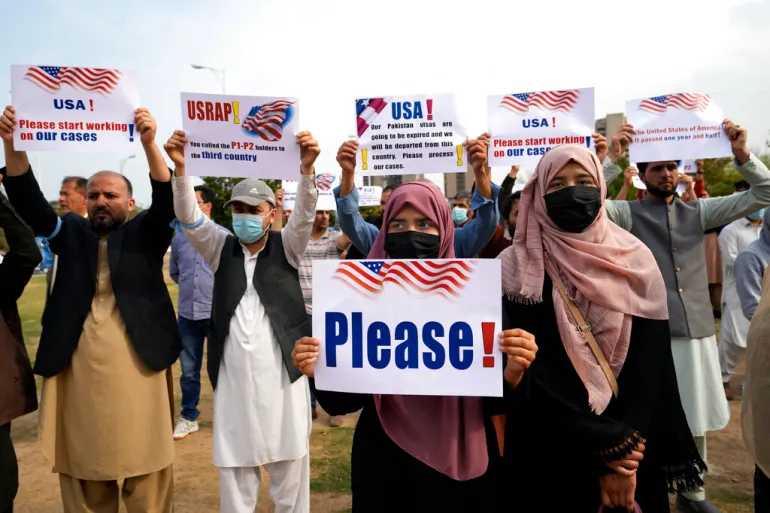Thousands of Afghans who are caseholders waiting for US immigration remain in complete uncertainty as they wait for a response from the US government, as the White House has recently added a new cause for concern with a travel ban.
Some holders of US immigration cases told Future Afghanistan that individuals with P1 and P2 cases, who have been stranded in third countries like Pakistan for over three years, need their situation addressed.
They said the recent US decision on travel bans is worrying.
Nader Ahmad, a holder of a US immigration case, said: “We hope the travel ban does not include immigrants or P1 and P2 case holders because about three years ago, we came to third countries based on US promises. Immigrants in Pakistan are grappling with numerous problems.”
The US president, regarding his decision to ban entry of Afghan citizens along with citizens of eleven other countries, stated that these countries do not have their domestic situations under control.
President Trump said that the goal us to keep “bad people” out of the US.
The United Nations said that while every country has the right to manage its borders, they must maintain human dignity.
Donald Trump, president of the United States, said: “It (Egypt) has been a country that we deal with very closely. They have things under control. The countries that we don’t have things under control. And why now? I can say that it can’t come soon enough. Frankly, we want to keep bad people out of our country.”
Stephane Dujarric, spokesman for the UN Secretary-General, said: “I think as we’ve said before, it is the right of every country to decide how to control its borders and who they allow in. Our position has always been across the world is that whatever system is put in place is one that respects people’s human dignity.”
“As I said before, it is every country’s right to decide how to control its borders and who to allow entry. Our position globally has been that any system established in this regard must preserve human dignity.”
Meanwhile, the US State Department stated regarding the termination of Temporary Protected Status (TPS) for Afghans that Afghan citizens who came to the US under this program should have applied for permanent residency.
The deputy spokesperson of the department added that TPS is a temporary process and could end at any time.
Tommy Pigott, principal deputy spokesperson for the Department of State of the US, said: “Well, the temporary protected status is only one dynamic when it comes to many different ways that people from Afghanistan have come to this country.”
He added that the TPS has always been considered a temporary protection.
However, the major concern is about the P1 and P2 cases; processes designed for vulnerable individuals, including civil activists and employees of international organizations. According to the head of AfghanEvac, these programs are currently suspended and, unlike the Special Immigrant Visa (SIV), are exempt from this travel ban.




